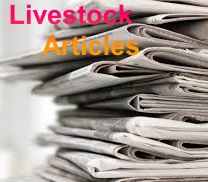Eastern Cape Farmers Suffer Livestock Losses Due To Veldfires
Eastern Cape farmers suffer livestock losses due to veldfires
By Octavia Avesca Spandiel | 16 July 2024 | 3:30 pm
Eastern Cape Rural Development and Agrarian Reform MEC Nonceba Kontsiwe is swiftly mobilising resources to assist farmers in the Qumbu Local Municipality who have suffered significant losses due to recent veldfires.
The Eastern Cape Rural Development and Agrarian Reform is prioritising assistance to farmers following veldfires that swept across a large area. Photo: Supplied
“The infernos, which swept through wards 17 and 19, encompassing villages like Zilandani, Tsilithwa, Nyanisweni, Mtondela, and Mahlungulu, have had a catastrophic impact on the local community,” Kontsiwe said.
The fires resulted in the loss of 200 livestock (171 sheep and 29 goats), with an additional 38 animals sustaining injuries.
READ Farmers urged to prepare for veld-fire season amid early outbreaks
Local farmers, united under their association, have urgently appealed for government intervention, calling for a disaster declaration.
In response, the Department of Rural Development and Agrarian Reform is prioritising immediate relief, livestock recovery, and long-term rehabilitation strategies.
“It is imperative that government steps in to address the humanitarian crisis facing these vulnerable community members. Their contributions to economic growth and poverty reduction through informal farming cannot be overstated,” said Kontsiwe.
Livestock losses and infrastructure damage
The devastation caused by the fires has left farmers like Sihle Vuzane grappling with immense challenges. The destruction of fences and grazing land has not only disrupted planting schedules but also posed a serious threat to livestock.
Vuzane described the ongoing anxiety and sleepless nights as farmers work tirelessly to protect their remaining animals.
“The fire damaged our fencing poles, causing our fence to fall in some parts, which exposed us to animals coming inside the farm.
READ Veld fires: experts advise on treating livestock to mitigate loss
“This delay in fixing the damage has set back our planting schedule. This is a major concern, with almost 70% of our livestock and grazing land affected. We are on alert and on guard 24/7 to ensure there are no more fires,” said Vuzane.
“We need aid to feed our livestock. This setback means we need to spend more on feed for the animals and purchase more poles to fix the damage caused by the fire.”
Vuzane also stressed the importance of community awareness and prevention.
“Our community is battling with this, and it’s not the first time it has happened. Winds make it very difficult to protect our livestock during this phase. Support with feed for the animals and assistance with the damage caused would be invaluable.”

.jpg)






